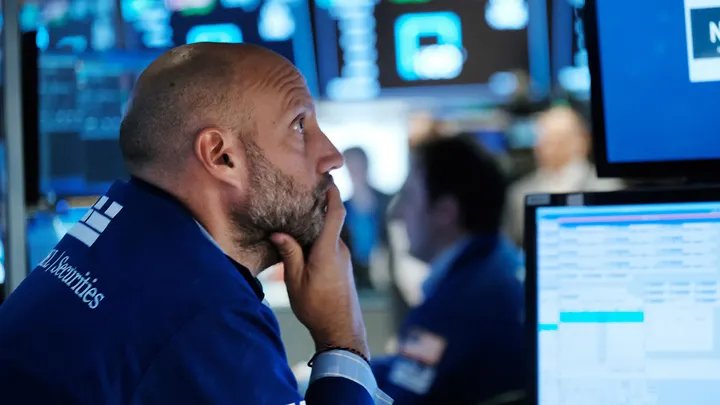
The stock market could face another tumultuous year in 2023, with the S&P 500 experiencing a dramatic correction if the U.S. tumbles into a recession, according to Bank of America strategists.
In a Monday analyst note, the strategists warned the benchmark index could fall as low as 3,240 points, or about 20%, from current levels if the U.S. enters a recession in coming months.
“History suggests that if the U.S. economy experiences a recession, the SPX bottoms out during the recession and not before,” the note said. “Only the March 1945-October 1945 recession saw the SPX rally ahead of and throughout the recession.”
The S&P has already plummeted about 16% this year as investors weigh concerns about stubbornly high inflation, steeper interest rate hikes and the likelihood of an economic downturn next year. But the Bank of America strategists warned on Monday there could be further declines ahead for the market.
“Average and median SPX declines associated with recessions are 32.5% and 27.1%, respectively, and lasted 13.1 and 14.9 months, respectively,” they wrote. “This equates to SPX 3,500 to SPX 3,240 in February to April 2023, which aligns with the SPX peak to trough declines associated with the cross of the 12-month MA below the 24-month MA on the SPX.”
Despite a slight deceleration in consumer prices last month – inflation rose 7.7% annually, the slowest pace since January – there is still a growing consensus on Wall Street that the Fed will trigger a recession as it raises interest rates at the fastest pace in decades.
The Federal Reserve in November approved a fourth consecutive 75-basis-point rate hike, lifting the federal funds rate to a range of 3.75% to 4% – well into restrictive levels – and showed no signs of pausing rate increases.
Although policymakers have indicated a preference for a smaller, 50-basis-point rate hike at their meeting next week, they have also signaled an appetite for a higher peak interest rate that could further restrict economic activity.
“The time for moderating the pace of rate increases may come as soon as the December meeting,” Fed Chairman Jerome Powell said during a speech in Washington last week. “Given our progress in tightening policy, the timing of that moderation is far less significant than the questions of how much further we will need to raise rates to control inflation, and the length of time it will be necessary to hold policy at a restrictive level.”





























